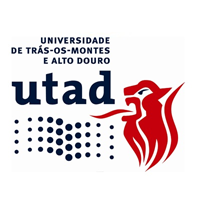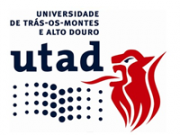Descrição
Idade Mínima: 0
Idade Máxima: 0
Situação:
Habilitações Mínimas:
Habilitações Específicas:
No final da ação os formandos deverão ser capazes de, de acordo com os temas propostos:
– Oferecer condições equitativas para assegurar a integração efetiva dos alunos, cultural, social e académica, independentemente da sua língua, cultura, condição social, origem e idade.
According to the proposed themes, at the end of the course, the trainees must be able to,:
– Oral and written command of Portuguese as a vehicular language;
– Development of progressive personal autonomy in the school and social scope ;
– Effective integration of students in the national curriculum and at any level or modality of teaching;
-Promotion of educational success and development of active citizenship
Revisões do Português A1.1.
Fonética / fonologia
– Vogais
– Consoantes
– Silabação
– Acentuação silábica e gráfica
Morfologia / classes de palavras
– Nome: subclasses; flexão em género e em número.
– Adjetivo: flexão em género e em número, graus dos adjetivos, a posição do adjetivo na frase (segundo o padrão SVO).
– Verbo: classificação genérica dos verbos e sua flexão; modos, alguns tempos simples e compostos, regras gerais de formação, de conjugação e de uso.
– Determinantes e alguns pronomes: artigos (definidos e indefinidos) / demonstrativos / possessivos / pronomes pessoais / demonstrativos / possessivos / interrogativos.
– Algumas preposições
– Alguns advérbios.
Sintaxe
– A frase simples
– Frase declarativa, interrogativa, imperativa, exclamativa
– Frase afirmativa e negativa
– A frase complexa (noções genéricas de coordenação e subordinação)
– Discurso direto / discurso indireto
Linguística textual
A consecução dos objetivos deste programa pressupõe o contato oral / escrito com textos de várias tipologias adaptados ao nível A2. A saber: Literatura de tradição oral (lendas, fábulas, provérbios e fraseologias), textos literários (narrativos, poéticos e dramáticos, em versão integral ou abreviada) e ainda letras de canções (eruditas ou populares). O estudo deste tipo de textos pretende trabalhar e desenvolver a competência cultural no aprendente de Língua Portuguesa.
A1.1 Portuguese reviews.
Phonetics / phonology
– Vowels
– Consonants
– Syllation
– Sylabic and graphic accentuation
Morphology / word classes
– Name: subclasses; flexion in gender and in number.
– Adjective: flexion in gender and number, degrees of adjectives, the position of the adjective in the sentence (according to the SVO pattern).
– Verb: generic classification of verbs and their flexion; simple and compound times, general rules of formation, conjugation and use.
– Determinants and some pronouns: articles (defined and undefined) / statements / possessive / personal pronouns / demonstrative / possessive / interrogative.
– Some prepositions
– Some adverbs.
Syntax
– The simple phrase
– Declarative, interrogative, mandatory, exclamatory phrase
– Affirmative and negative phrase
– The complex phrase (generic notions of coordination and subordination)
– Direct speech / indirect speech
Textual linguistics
The achievement of the objectives of this program presupposes oral/written contact with texts of various typologies adapted to level A2. Namely: Literature of oral tradition (legends, fables, proverbs and phraseologies), literary texts (narrative, poetic and dramatic, in full or abbreviated version) and also lyrics of songs (scholarly or popular). The study of this type of texts aims to work and develop cultural competence in the Portuguese language learner.
CONDIÇÕES DE FREQUÊNCIA: Os alunos devem frequentar no mínimo 75% das aulas e obter nota mínima de 10 valores, para obter no final do curso um certificado de competências.
CONDIÇÕES DE AVALIAÇÃO: 1 Prova final (escrita e oral), este teste final será feito de acordo com as normas do Quadro Europeu Comum de Referência.
ATTENDANCE CONDITIONS : Students must attend at least 75% of classes and achieve a minimum score of 10 values to get a skills certificate at the end of the course.
CONDITIONS OF EVALUATION : Final test (written and oral) This final test will be done in accordance with the standards of the Common European Frame of Reference.
Certificado de avaliação
Evaluation certificate




